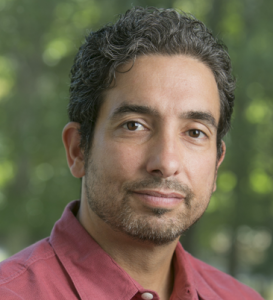DIGITAL FUTURES WORKSHOP: Philip M. Napoli, Duke University
Via Zoom | Register here | or email quello@msu.edu
Debates about political bias in the content curation and moderation practices of social media platforms have spilled over into the policy realm, rekindling conversations about the Fairness Doctrine and its potential utility in possible regulatory approaches to social media. This presentation revisits the history of the Fairness Doctrine, including its frequent recurrence as a point of reference in subsequent media policy debates, and uses this history as a lens for critically examining current proposals for integrating Fairness Doctrine-like principles into a regulatory framework for social media, including efforts to make Section 230 immunity from liability contingent upon platforms exhibiting greater “fairness” in their content curation and moderation practices. This presentation will pay particular attention to fundamental technological and political differences between the legacy and current contexts, as well as to key lessons from the Fairness Doctrine that should inform current deliberations.
 Philip M. Napoli is the James R. Shepley Distinguished Professor of Public Policy and the Senior Associate Dean for Faculty and Research in the Sanford School of Public Policy at Duke University, where he is also a Faculty Affiliate with the DeWitt Wallace Center for Media & Democracy and the Duke Center for Law and Technology. Professor Napoli’s research focuses on media institutions and media regulation and policy. He has provided formal and informal expert testimony on these topics to government bodies such as the U.S. Senate, the Federal Communications Commission, the Federal Trade Commission, and the Congressional Research Service. He is the author/editor of seven books, the most recent being Social Media and the Public Interest: Media Regulation in the Disinformation Age (Columbia University Press, 2019), which received the 2020 Broadcast Education Association Book Award. Professor Napoli’s research has been supported by organizations such as the Ford Foundation, the Knight Foundation, the Democracy Fund, and the Social Science Research Council. He has been interviewed in media outlets such as the New York Times, the NBC Nightly News, the Los Angeles Times, Politico, and National Public Radio.
Philip M. Napoli is the James R. Shepley Distinguished Professor of Public Policy and the Senior Associate Dean for Faculty and Research in the Sanford School of Public Policy at Duke University, where he is also a Faculty Affiliate with the DeWitt Wallace Center for Media & Democracy and the Duke Center for Law and Technology. Professor Napoli’s research focuses on media institutions and media regulation and policy. He has provided formal and informal expert testimony on these topics to government bodies such as the U.S. Senate, the Federal Communications Commission, the Federal Trade Commission, and the Congressional Research Service. He is the author/editor of seven books, the most recent being Social Media and the Public Interest: Media Regulation in the Disinformation Age (Columbia University Press, 2019), which received the 2020 Broadcast Education Association Book Award. Professor Napoli’s research has been supported by organizations such as the Ford Foundation, the Knight Foundation, the Democracy Fund, and the Social Science Research Council. He has been interviewed in media outlets such as the New York Times, the NBC Nightly News, the Los Angeles Times, Politico, and National Public Radio.


